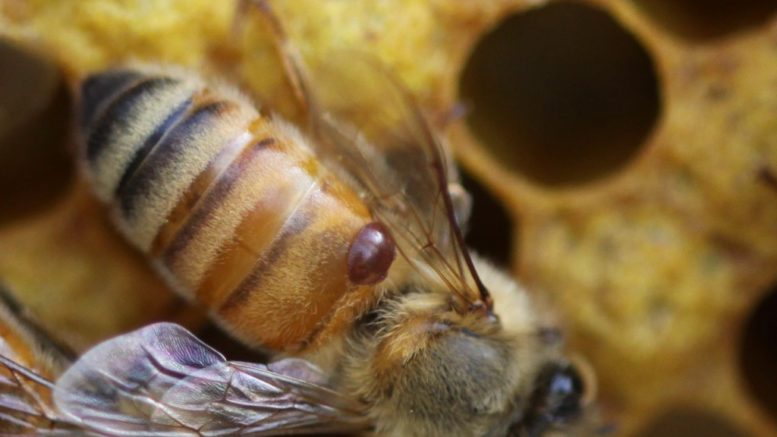New measures have been put in place as part of the varroa mite emergency response to help deal with an expected increase in bee activity as the weather heats up.
The mite, which looks like a tick, was found at Calga in July.
Minister for Agriculture, Dugald Saunders, said people need to be prepared as we head into spring to prevent the mite from spreading.
“Bees typically swarm during warmer months as a way of establishing new colonies, so we’re reminding people to be aware that these swarms can become feral or unmanaged in places like chimneys or walls of houses over many years,” Saunders said.
“Reporting these swarms and colonies is really important so we’re asking members of the public who find any to exercise caution and contact the Department of Primary Industries (DPI), so they can take targeted action to remove them.
“A plan has been developed to manage feral colonies, which includes euthanising colonies in the eradication zones.”
In July a 10km inclusion zone around the Calga site was announced, along with a 25km surveillance zone with all local beekeepers encouraged to “sugar-shake” their bees to detect varroa infestations.
Owners of honeybees acquired from within the 50km emergency notification zone of the Port of Newcastle in the past 12 months should be on the alert.
“Only beekeepers, pest controllers and people experienced in handling and euthanising honeybees should attempt to eradicate a hive or swarming colony,” Saunders said.
“A bee sting can cause pain and swelling, and some people may have a serious allergic reaction to the sting, so if you don’t have experience in handling bees, do not approach them and leave it to the experts.”
Commercial and recreational beekeepers must be registered to take part in euthanising feral bee colonies.
If you come across a feral bee colony, contact DPI’s Exotic Plant Pest Hotline on 1800 084 881 (9am-5pm, seven days a week).
For more information on the varroa mite emergency response, visit www.dpi.nsw.gov.au/varroa.
Verified source: Media release, Aug 14, 2022, NSW Government



